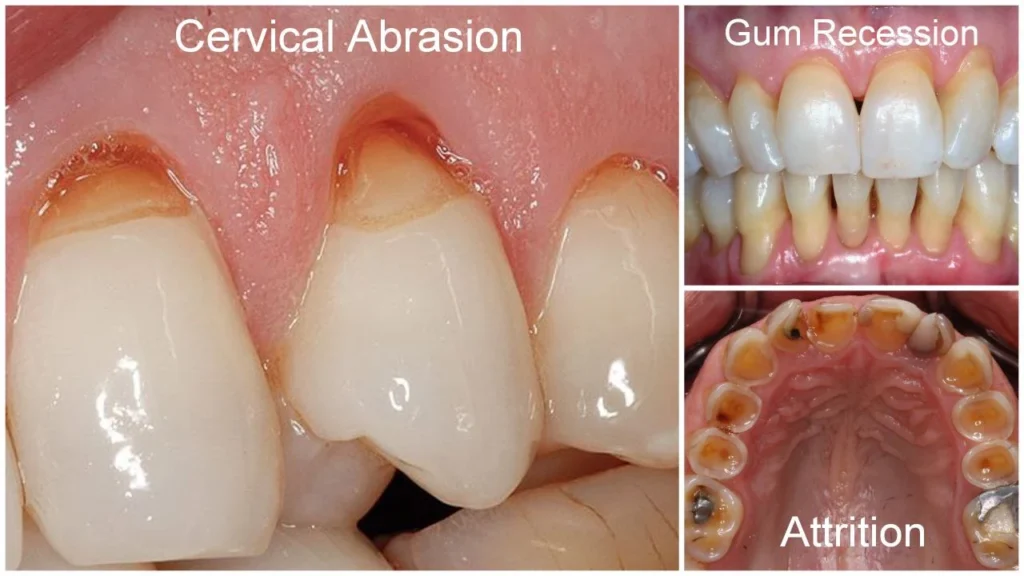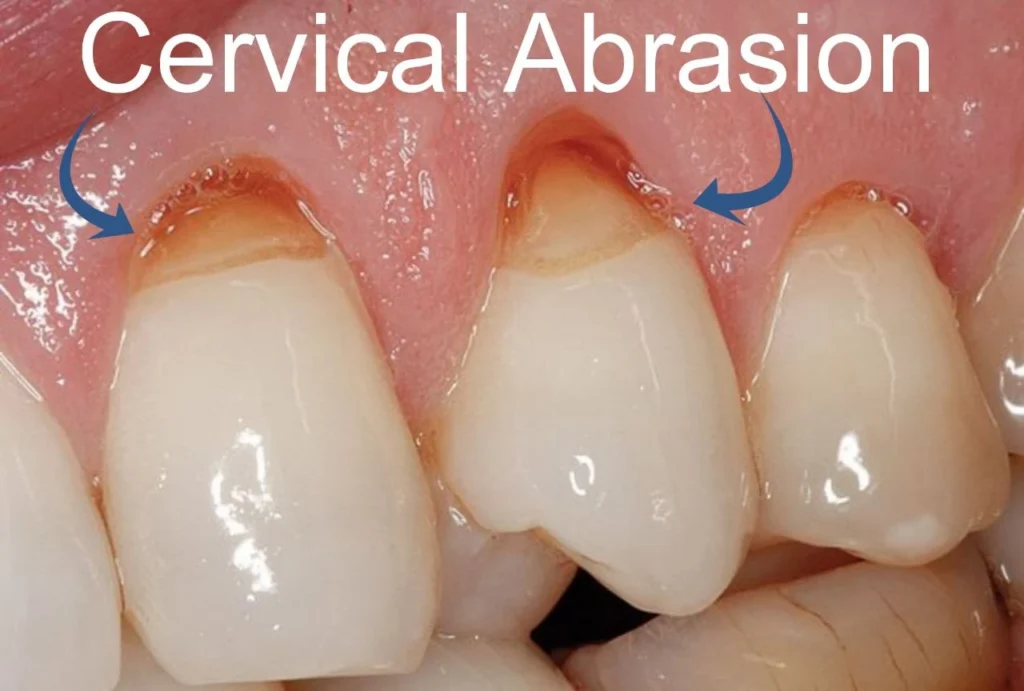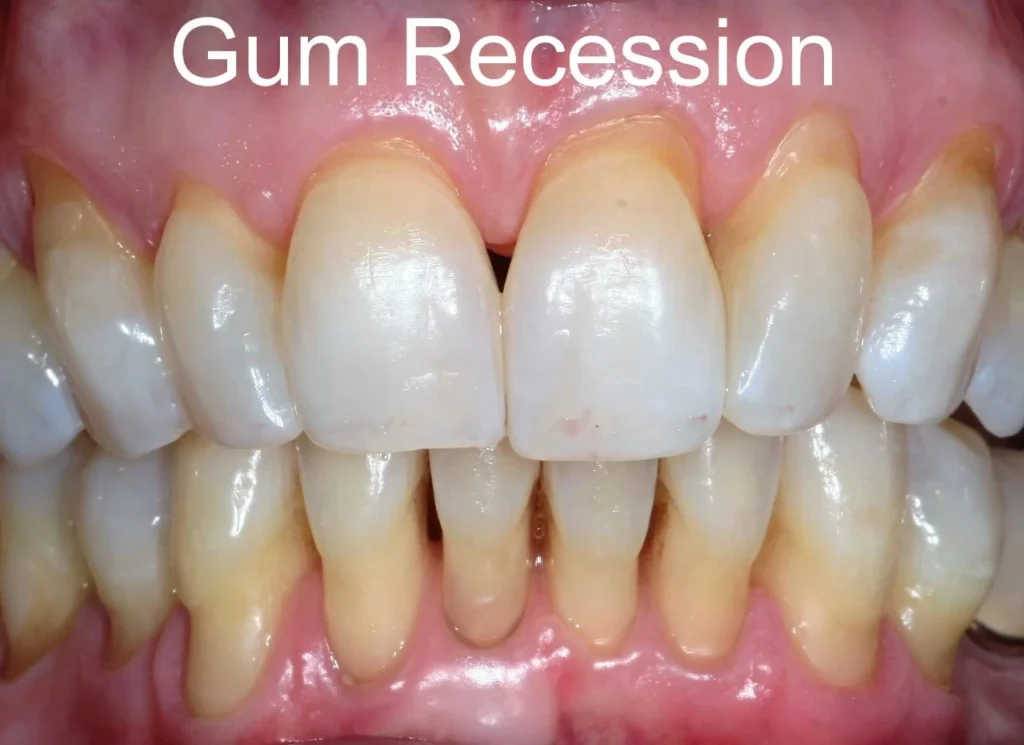Click to call
The Hidden Dangers of Hard Brushing: Why More Force Isn’t Better for Your Teeth
We’ve all heard the advice: “Brush your teeth twice a day for a healthy smile.” But did you know that brushing too hard can actually harm your teeth and gums? Many people believe that the harder they brush, the cleaner their teeth will be. However, this well-intentioned habit can lead to a host of dental problems. We want to help you understand why hard brushing can do more damage than good and what you can do instead.

The Damage Hard Brushing Can Cause
While it might seem logical that applying more pressure while brushing will remove more plaque, the truth is that hard brushing can lead to several dental issues. Here are some of the most common problems caused by brushing too aggressively:
1. Attrition: Wearing Down Your Teeth
Attrition refers to the gradual wearing down of your teeth, particularly the enamel—the hard, protective outer layer. When you brush too hard, you can accelerate this process, leading to thinner enamel and increased sensitivity. Once the enamel wears away, it doesn’t regenerate, leaving your teeth more vulnerable to decay and damage.

2. Cervical Abrasion: The Silent Erosion
Cervical abrasion occurs when the enamel near the gum line wears away due to excessive brushing force. This results in a notch or groove in the tooth, often accompanied by sensitivity to hot, cold, or sweet foods. Over time, cervical abrasions can expose the softer dentin layer of the tooth, increasing the risk of cavities and requiring restorative treatment.

3. Gum Recession: Exposing the Roots
Gum recession is one of the most common results of hard brushing. When you apply too much pressure, you can damage the delicate gum tissue, causing it to pull away from the teeth. As the gums recede, the roots of your teeth become exposed, leading to increased sensitivity and a higher likelihood of developing periodontal disease. Gum recession is irreversible and may require gum grafting surgery to correct in severe cases.

Signs You’re Brushing Too Hard
Not sure if you’re guilty of brushing too hard? Here are some signs to watch out for:
- Tooth Sensitivity: If you notice increased sensitivity to hot, cold, or sweet foods, it could be a sign that your enamel is thinning due to hard brushing.
- Notches or Grooves: Check near the gum line for any visible wear or indentations on your teeth—these could be signs of cervical abrasion.
- Receding Gums: If your gums appear to be pulling away from your teeth or if your teeth look longer than they used to, you might be experiencing gum recession.
- Frayed Toothbrush Bristles: If the bristles of your toothbrush look frayed or worn out after just a few weeks of use, it’s a clear indicator that you’re brushing too hard.
How to Brush the Right Way
To protect your teeth and gums while still keeping them clean, follow these tips for proper brushing technique:
1. Use a Soft-Bristled Toothbrush
Always opt for a toothbrush with soft bristles. Hard bristles can be too abrasive on your teeth and gums, especially when combined with excessive force.
2. Hold Your Toothbrush Gently
Hold your toothbrush with a light grip, as if you’re holding a pencil. This will help you avoid applying too much pressure.
3. Brush in Gentle, Circular Motions
Instead of scrubbing back and forth, use gentle, circular motions to clean your teeth. Focus on brushing each tooth individually, and take your time to ensure all surfaces are covered.
4. Let the Brush Do the Work
Modern toothbrushes are designed to be effective with minimal pressure. Whether you’re using a manual or electric toothbrush, let the bristles do the work. There’s no need to press hard—just guide the brush along your teeth and gums.
5. Be Mindful of Time
Aim to brush for two minutes, twice a day. Rushing through your brushing routine can lead to overbrushing in some areas and missing others entirely.
The Bottom Line
Brushing your teeth is essential for maintaining good oral hygiene, but more force doesn’t mean a better clean. In fact, brushing too hard can lead to serious dental issues like attrition, cervical abrasion, and gum recession. By adopting a gentler brushing technique and using the right tools, you can keep your teeth and gums healthy without causing unnecessary damage.
If you’re concerned about the effects of hard brushing on your teeth or if you’ve noticed any signs of wear or sensitivity, visit Brace Dental Clinic at our Tirumalagiri (Secunderabad), Rajendranagar, or Mallepally branches. Our expert team is here to provide personalized advice and recommend the best brushing practices for your unique dental needs. Remember, a healthy smile is about quality, not quantity, of brushing pressure!
